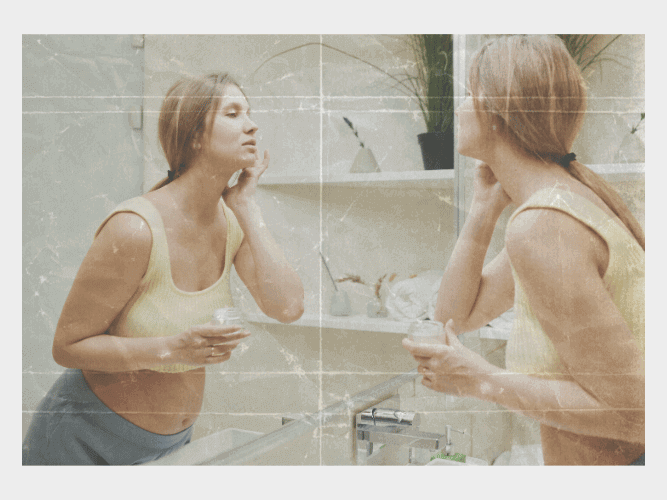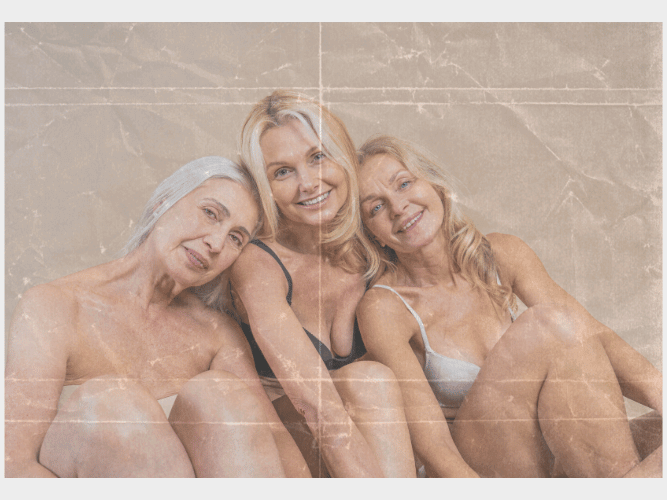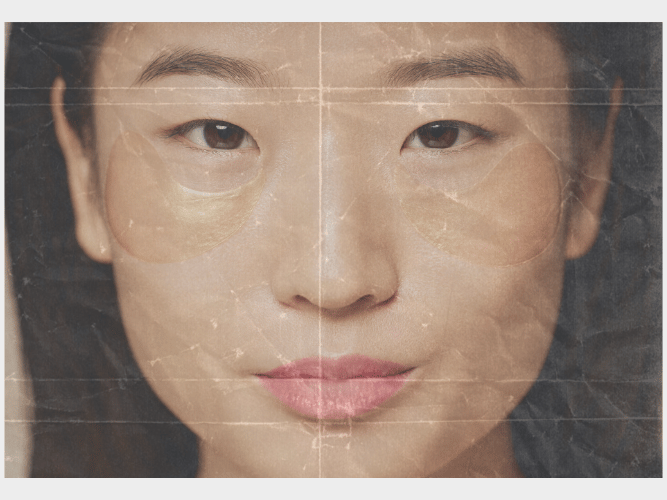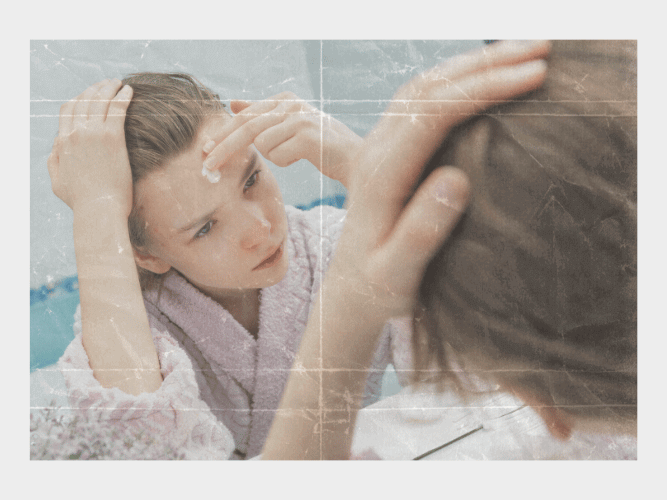If you’re planning to get pregnant or already expecting, it’s essential to know which Skincare Ingredients to Avoid When Trying to Conceive or Pregnant. Many skincare products contain ingredients that can negatively impact fetal development.
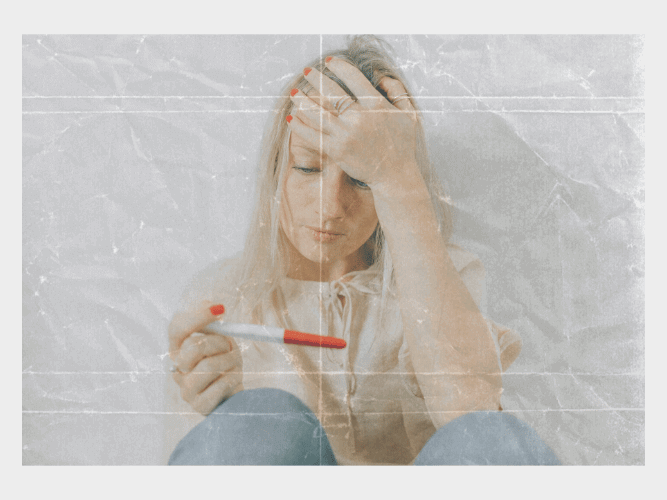
This guide highlights the most critical ingredients to avoid, offers dermatologist advice, and helps you navigate your skincare routine safely.
Why Avoid Certain Skincare Ingredients When Trying to Conceive?
When preparing for pregnancy, eliminating specific ingredients from your skincare routine 1-3 months in advance helps create a safer environment for conception. Certain skincare ingredients are absorbed through the skin and may enter the bloodstream, potentially impacting fetal health. Avoiding these ingredients early on protects both you and your future child.
Key Skincare Ingredients to Avoid When Trying to Conceive

1. Retinol and Vitamin A Derivatives
- Products to Avoid: Retinol, Tretinoin, Adapalene, Retin-A
- Why Avoid It? Retinoids, including retinol and its derivatives, are widely used for their anti-aging benefits and effectiveness in treating acne, smile lines and skin texture. However, high doses of vitamin A have been shown to cause severe birth defects, affecting the development of the fetal brain and spine.
- When to Stop: Avoid all Vitamin A derivatives at least 1-3 months before trying to conceive and throughout pregnancy.
Retinoids are commonly found in anti-aging creams, acne treatments and even in some night skincare serums. Many women rely on these products for clearer, smoother skin, but it’s important to remember that retinoids are potent. Research links retinoids with an increased risk of fetal malformation, which can lead to physical deformities. As a safe alternative, you can speak with your dermatologist about pregnancy-safe retinol alternatives, such as bakuchiol.
2. Spironolactone
- Product Form: Available as an oral medication or topical cream for treating hormonal acne.
- Why Avoid It? Spironolactone helps reduce hormonal acne by blocking androgen receptors, lowering testosterone levels. This is beneficial for controlling acne but can interfere with male genital development if you’re pregnant with a male fetus.
- When to Stop: Stop using spironolactone at least 1-3 months before trying to conceive.
Spironolactone is a go-to medication for women struggling with adult acne, particularly hormonal breakouts along the jawline. Since it blocks testosterone, it’s effective for clear skin but also has an anti-androgen effect that can disrupt hormonal balance necessary for fetal development. Consult a dermatologist for pregnancy-safe skincare ingredients that manage acne without impacting hormonal levels.
3. Finasteride and Nutrafol
- Product Form: Nutrafol (hair health supplement), Finasteride (prescription medication for hair loss)
- Why Avoid It? Finasteride is a common treatment for hair loss that works by blocking the conversion of testosterone to dihydrotestosterone (DHT), a hormone linked to hair thinning. Nutrafol, though a natural supplement, contains saw palmetto, which has a similar effect. Since testosterone is essential for fetal development, especially for male fetuses, these products should be avoided.
- When to Stop: Avoid taking Nutrafol or finasteride supplements when planning to conceive or during pregnancy.
Finasteride is often prescribed to men for hair loss, but many women experiencing hair thinning also use it. However, the testosterone-blocking effects can interfere with fetal development, particularly male reproductive development. Nutrafol, marketed as a natural solution for hair health, similarly contains saw palmetto, an herb that mimics the effects of finasteride. For safer options, consult a dermatologist who can recommend pregnancy-safe alternatives for hair health.
4. Minoxidil
- Product Form: Common in topical hair regrowth treatments like Rogaine
- Why Avoid It? Minoxidil stimulates hair growth by improving blood circulation to hair follicles, but it also has a blood pressure-lowering effect. During pregnancy, lowering blood pressure too much can reduce blood flow to the placenta, potentially impacting fetal development.
- When to Stop: Stop using minoxidil products, like Rogaine, at least 1-3 months before trying to conceive.
Women struggling with postpartum or pregnancy-related hair thinning often turn to minoxidil to restore hair thickness. However, its blood-pressure-lowering effects mean it could affect blood flow to your growing baby. To avoid any circulation issues that may harm the fetus, Additional reported features include cardiac, neurodevelopmental, gastrointestinal, renal, and limb malformations. Conclusive studies are however not available. So, consult your dermatologist before using any hair growth products during pregnancy.
Click HERE to learn more about Minoxidil For Hair Loss Treatment.
Safe Skincare Alternatives During Pregnancy
If you’re seeking safe skincare alternatives for pregnancy and conception planning, consider the following dermatologist-recommended ingredients, which can help address various skin concerns without compromising fetal health:
- Azelaic Acid: Known for its acne-fighting and skin-brightening properties, azelaic acid is safe for pregnant women. It can help manage acne and reduce pigmentation without posing risks to the fetus.
- Hyaluronic Acid: Ideal for keeping skin hydrated and plump, hyaluronic acid is gentle on sensitive skin and safe for pregnancy, providing moisture without harmful effects.
- Benzoyl Peroxide: Often used for acne treatment, benzoyl peroxide is generally considered safe for pregnant women when used in moderate concentrations (up to 5%). It effectively targets acne-causing bacteria and inflammation without impacting fetal health. However, it’s always wise to consult your dermatologist to confirm the ideal concentration and frequency.
These alternatives allow you to maintain a healthy skincare routine that addresses common concerns like acne, dryness, and dullness without exposing your skin—or your baby—to potentially harmful ingredients.
Dermatologist Advice on Pregnancy Skincare
Consulting with a board-certified dermatologist is a proactive step before you start trying to conceive. Dermatologists can provide personalized recommendations based on your skin type and concerns while ensuring that you avoid any harmful products. For instance, if you need an acne solution or anti-aging alternatives, your dermatologist can guide you toward pregnancy-safe skincare ingredients that won’t compromise fetal health.
Recap: Skincare Ingredients to Avoid for Fetal Health
Here’s a recap of the ingredients and products to avoid when trying to conceive or during pregnancy:
- Retinoids and Vitamin A Derivatives (Retinol, Tretinoin, Adapalene)
- Spironolactone (Hormonal Acne Treatment)
- Finasteride and Nutrafol (Hair Loss and Hair Health Supplements)
- Minoxidil (Hair Regrowth Products like Rogaine)
Avoiding these unsafe ingredients in skincare for pregnancy helps reduce potential risks to fetal health.
FAQs
- Any tips on how to help with sudden cystic acne during pregnancy?
Yes. Benzoyl peroxide can be used as a face wash, and azelaic acid 15% is an effective, prescription-safe cream for acne during pregnancy. - Any alternatives for Vitamin A derivatives?
Yes. Try bakuchiol, a pregnancy-safe alternative that mimics the benefits of retinol without posing risks to the fetus. - Which skincare ingredients are unsafe when trying to get pregnant?
Avoid retinol, spironolactone, minoxidil, and finasteride, as these can affect fetal development. - What skincare ingredients should I avoid during early pregnancy?
In early pregnancy, avoid all Vitamin A derivatives, spironolactone, and minoxidil to support fetal health. - How can I manage hair loss while pregnant without minoxidil?
Consult your dermatologist for safe options, as minoxidil is not recommended during pregnancy. - Is retinol safe for pregnancy and conception?
No, retinol and other Vitamin A derivatives are linked to birth defects and should be avoided during pregnancy. - What can I use for hormonal acne while trying to conceive?
Avoid spironolactone and consider azelaic acid or other safe, dermatologist-recommended options. - Why avoid certain skincare ingredients when trying to conceive?
Many skincare ingredients can enter the bloodstream and potentially impact fetal development. - Can I continue my usual skincare routine when trying to conceive?
Review your routine with a dermatologist to ensure no harmful ingredients are included. - Are there safe hair loss treatments to use during pregnancy?
Hair health products like Nutrafol and finasteride are not safe. Ask a dermatologist for alternative solutions.
By avoiding these ingredients and consulting a dermatologist, you’ll be better prepared for a healthy, pregnancy-safe skincare routine that supports both your skin and your growing baby.
